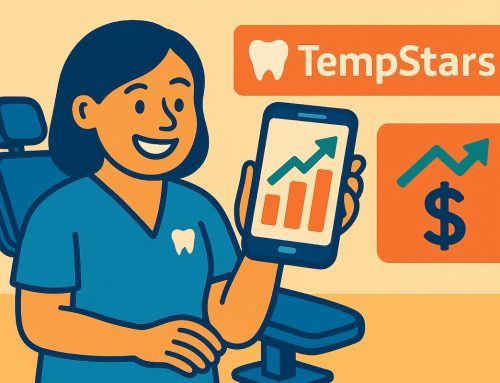The economic landscape has changed dramatically due to the emergence of the on-demand or “gig” economy. Many companies, such as Uber and GrubHub, have disrupted the status quo by using modern technology to provide quick, convenient, and efficient services. You can now order a taxi directly from your smartphone and watch its progress in real-time from an app, or you can order your favourite meals from restaurants and have them delivered to your door within minutes. The on-demand economy has had a massive impact on industries, and this trend looks set to continue for the foreseeable future.
The rapid growth of on-demand personnel
The growth of on-demand services provided by companies that utilize on-demand personnel is undeniable. According to a Randstad study in 2016, “non-traditional” workers made up twenty to thirty percent of workforce in Canada. Whether we call them freelancers, consultants, independent contractors or any other title, they are growing in the workplace.
There are several key benefits of independent work, which include a high level of freedom, payment for specific tasks or assignments, and short project timeframes.
The on-demand economy has its fair share of critics. Many of these critics cite a lack of safeguards for workers and inadequate hourly pay as potential downsides of this type of work. However, many workers find independent work provides them with plenty of benefits. Flexibility in hours, setting your own rates and direct control over work-life balance to name a few. Plus, they can earn an income from new opportunities they otherwise wouldn’t have come across. A survey by BMO Wealth Management in 2018 reports that 60% of respondents were self-employed by choice.
The flexibility offered by on-demand workers is also valued by employers. Businesses in various industries experience peaks and troughs in activity throughout the different seasons. On-demand workers allow them to cover busy periods with extra personnel, and save costs on payroll when it’s quiet. Finding the right people to cover a role on a short term basis is usually costly and riddled with problems; on-demand workers take the hassle out of finding suitable personnel for short term work.
Integrate on-demand personnel the right way
While the on-demand economy is a wonderful thing, and it does provide many businesses with lots of benefits, it’s important to keep the workers themselves in mind. After all, these workers are the reason why the on-demand economy is so successful. Consideration must be given to how these temporary workers are treated compared with your permanent personnel, as their treatment and integration into your team will have a significant impact on how smoothly your business runs.
The majority of dental professionals operating in the on-demand economy work for multiple practices as it allows them to pick up shifts at times that suit them. However, due to this, they can simply leave one job for another if they don’t feel comfortable. There’s simply no shortage of work for them. It’s important to think about how these temporary workers can be integrated into your team, so they feel welcome and at ease working for you.
Treat all team members equally and lead by example
Welcome on-demand employees as part of your team. This means introducing them to everybody and helping to get them settled in. Show them around your practice and assist them in becoming familiar with how you work. This will ensure that they feel relaxed in the new environment, and it’ll support them in doing their job correctly. Don’t just let them in and tell them to get on with their work by themselves!
It’s not unusual for dentists to treat the temporary personnel differently from permanent team members. Permanent team members are seen as “loyal” in a sense, whereas temporary personnel regularly come and go as they please. This is not how the situation should be viewed. A feeling of “us” vs. “them” will negatively impact their work and the running of your practice. Making your temporary personnel feel welcome and valued will make everything run much smoother.
Leading by example is the right way to do things. By this, we mean inviting on-demand workers to team lunches or post-work drinks along with the permanent members of the team. Small acts like this can have a significant impact on making temporary personnel feel part of the team. It also gives permanent team members a good example to follow.
Have excellent communication with all members of your team
It’s common for temporary personnel to work irregular shifts, so they may not always be present for important news and updates concerning your practice. Having proper methods in place to keep on-demand personnel up-do-date with any new developments that may affect their work is essential. Inadequate communication can also lead to a feeling of exclusion, resulting in easy to avoid mistakes occurring, which ultimately causes a decrease in productivity and performance. No matter whether personnel are temporary or permanent, every employee should receive useful and relevant information about their jobs.
Listen to feedback and implement changes
Receiving regular feedback on how you’re doing things is very useful in adjusting your strategies and processes to ensure effectiveness. Don’t just listen to feedback from permanent employees; you should also receive input from temporary workers. This feedback will help identify potential problems and areas that need to be looked at. Checking in regularly with your team, both permanent and temporary, will make your team feel listened to and valued.
Beneficial for all
Hiring on-demand workers can benefit both your business and your workers, there’s no doubt about it. You can have qualified people step in at a moment’s notice, filling the gaps during busy periods. However, it’s crucial to work with them as if they’re a part of your permanent team by making them feel welcome. This will ensure your personnel remain happy, and your dental practice will run like a well-oiled machine. If you’re not already working with on-demand personnel, give it a try. You will not be disappointed.














